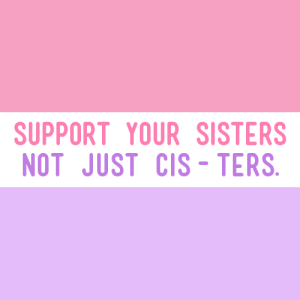Coming up for air, I looked into his eyes.
We explored each other, traced the lines of creases, rolled around like kids on a snow day, hugging and kissing, never wanting to get out of bed.
From the beginning, I was hooked.
I felt intense elation, almost like a rush of a drug, but it wasn’t so much emotion as it was a drive, a craving.
As soon as we’d started, I’d trail off, and absorb entirely into him.
That was what my relationships from ages 14 to 29 looked like. All of them.
I had yet to realize what made me tick, which made it difficult to have any kind of identity in a relationship other than my partners’.
But then, I took a break from serial monogamy and contemplated who I, Cynthia, was, and I realized I was worth saving.
On my own, I watched French romantic comedies, filled pages with doodles and squiggly lines, ran along the water, went hiking, did yoga every morning and meditated afterward.
I wrote morning pages, I went out with my friends, I danced around my apartment, I cried a lot and I laughed.
On my own, I belted out songs that I didn’t know the words to, sometimes I didn’t shower, most of the time I didn’t shave my legs, and I always dropped my phone without feeling badly about it – all actions that made me feel safe, happy, good.
My biggest worry when I met my current boyfriend – and still, after two years – is falling back into my old pattern of co-dependency.
To combat this fear, I’ve come up with some ways to make sure that I continue to live my own life while in love.
Know What Is – And Is Not – My Responsibility
Sometimes I visualize that I’m sitting in a movie theater watching my life on the big screen.
I do this to detach from the details and pan out. I pan out so I can see where I fit in the stories I live.
What I’ve found is that no matter how fierce and outrageous or how calm and quiet the story can be, the only person in that story I am responsible for is myself.
But what about in a relationship? Is it any different?
There are three characters that make up a relationship: you, your partner, and the relationship.
Think about this for a minute.
There is no relationship without you or your partner.
For a relationship to work, it needs to be maintained by both individuals. Both parties must tend to it and nurture it. And to be able to tend to it, both partners need to be healthy to do so.
What I want to emphasize here is that the relationship is what both people have in common, which means both people are responsible for it.
What each partner is not responsible for is the other.
So if my boyfriend is having a hard time finding a job, it’s his responsibility to look at job sites, not mine. Or if I haven’t talked with my mother in a couple of weeks, it’s not my partner’s responsibility to call her and let her know how I’m doing.
A lot of maintaining who I am in my relationship comes from not getting involved in what are my partner’s issues.
Melody Beattie in Codependent No More says, “Detaching does not mean we don’t care. It means we learn to love, care, and be involved without going crazy.”
The key takeaway is that it’s impossible to solve other people’s problems.
It’s important to focus on what I can and cannot change, and most often, the only person I can change is myself.
If I think of tending to my side of the street and letting my partner attend to his, then when we meet in the middle, there aren’t any potholes we fall into.
Feed Yourself First
In my past relationships, I cared for the other person more than myself, tended to their needs more than my own.
After feeding my partner, literally and figuratively, there was nothing but scraps left for me.
To keep my side of the street clean (and myself healthy), what I had to do was figure out how to feed myself first in the relationship.
What this meant was keeping myself my priority and continuing, like I had when I was on my own, to make myself feel good, happy, sexy, beautiful, and fun.
That is, being in a relationship doesn’t suddenly mean it’s now my partner’s responsibility to make me feel good.
What I did was keep all my rituals from beforehand: yoga, meditation, morning pages, affirmations, getting waxed, pedicures, massages, facials, wearing sexy underwear, buying good for me food, and talking with friends.
To do this, I had to create time and space just for me.
Before, when on my own, it was easy to create time for myself, but now I think of my days as containers. I allot a certain amount of time to work, to myself, and to my relationship.
I – and my relationship – are healthier for it.
Say What You Feel
My boyfriend and I were in an airport restaurant waiting for our flight to Vegas when he told me he wanted to watch the hockey game the next morning.
“The game starts at 11. They’re in the finals. It’s a big one.”
I felt my insides swell and start firing.
“Are you annoyed?” he asked.
In the past, I would have said no, which would have been a lie, and I would have felt awful, and I would have gotten even angrier that he couldn’t read my mind and understand why I was mad at him.
Sound familiar?
This time, instead, I paused and said, “Yes. I’m annoyed because it makes me feel like you would rather watch the hockey game than spend time with me, but I’m not going to tell you not to watch the hockey game.”
And just like that, the uneasy feeling was gone. I had said what was on my mind, and therefore, I had taken care of my need in that moment.
The only way to get my needs and wants met is to directly express what they are.
If my partner says something that makes me feel bad, or if something comes up that makes me feel icky, I immediately feel it in my body.
For me, my chest tightens, my stomach starts rumbling, and I feel my pulse in my throat.
The feeling triggers a physical response, and then it’s up to me to either handle or declare it.
Because I want to feel good, my goal is to get the discomfort out of my body as quickly as I can. The way to do this is to say how I feel.
If I keep the emotion in and do or say the opposite of what I feel, my insides shrink, and my mind starts running away from anything good and toward a story of blame and excuse.
The goal is to drop the story around the feeling and simply deal with the emotion.
Checking In
Maintaining who I am in a relationship is a practice.
Daily, I think about issues – mine, my partner’s, my relationship’s. And to keep present requires a bit of action, which is where check-ins come into play.
Check-ins are an easy way to make sure that I’m staying true to myself while in love.
It’s not only something I do with my boyfriend every couple months to make sure we’re both happy, but it’s something I do with myself every couple of weeks to make sure that I, too, am okay on my own.
Are you happy? What do you want to be doing that you aren’t doing? What would make you feel sexy right now? Have you done something for yourself this week?
I can ask myself any of these questions and more, but the point is to touch base with my wants and needs, knowing that I am responsible for my own wellbeing.
—
I know the above may seem overwhelming.
I mean, who really thinks to monitor themselves to make sure they’re taking care of themselves?
Well, all I know is that it took me a long time to get to know myself and to really like her.
For me, there’s no way I’m going back to scraping the bowl and relying on someone else to make me feel good. Because the truth is that all it ever made me feel was lack and want.
I deserve to always be taken care of, and I know that it’s my responsibility – not anyone else’s – to make that happen.
These are some things I do and I’d love to hear more suggestions from others if you have any!
Want to discuss this further? Login to our online forum and start a post! If you’re not already registered as a forum user, please register first here.
Cynthia Kane is a Contributing Writer at Everyday Feminism. Cynthia Kane is a Contributing Writer for Everyday Feminism. Over the last year and a half, she’s relearned the following: how to jump up and down when she’s happy, cry when she’s sad, laugh when something’s funny, take a compliment, smile at strangers, and be open to the fact that everyone is going through it all the time. For more, visit her website or follow her on Twitter @cynkane. Read her articles here.
Search our 3000+ articles!
Read our articles about:
Our online racial justice training
Used by hundreds of universities, non-profits, and businesses.
Click to learn more





















